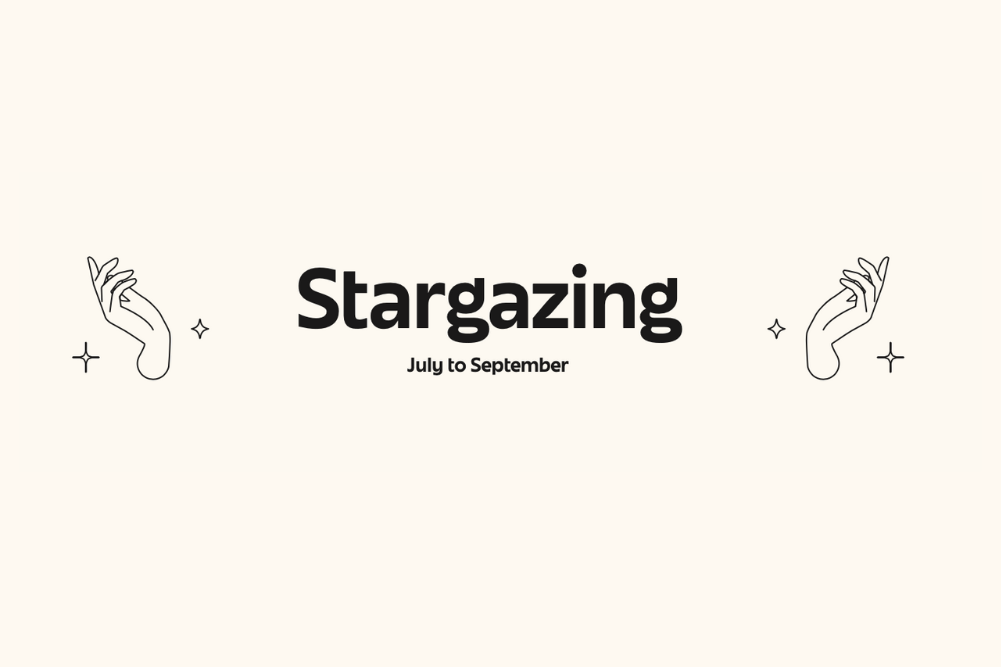What your child’s astrology chart reveals about their talents and needs
Children are fun to work with. Parents and astrologers can engage children’s charts for many reasons: to track changes in appetite, plan new food experiences, and address needs for discipline, boundaries or differentiation. The chart can also show what’s The list goes on, as well as suitable schooling and possible interest in sports. The list goes on.
The astrological lens allows you to advocate for your children and better foster the expression of their individual nature. In the growth-based framework of astrology, parents are not authoritarians but ambassadors of growth. Here, I’ll hone in on many good uses of astrology with children.
Ethical issues
While fun and rewarding, using astrology with children can be controversial. As a parent in our modern freewill-focused culture, you probably encourage your children to follow their dreams. Our society suggests a person can become whatever they want — an Olympic athlete, a piano player, whatever they dream. The fatedness inherent in the lens of astrology says otherwise.
Astrology, a natural design theory, celebrates gifts but also accepts limitations. Assumptions are made that earthy types are slower and heavier, for instance, while fire people are uplifted and kinetic. What else makes astrology controversial for children? We fear boxing them in, telling them who they are, not allowing them to discover life. Here are a few specific issues to remember as you talk with children about their charts.
Power differentials
Most simply, a power differential is a difference in power. Power differentials are acknowledged in many professions, as with lawyers or counsellors. Imagine a lawyer who has the power to navigate the judicial system, compared with his client, who is powerless in this regard. Because of the difference in power, a lawyer must act hyper-ethically in all situations, empowering the client whenever possible.
When an astrologer works with children, the power differential is double. Not only do you have access to the child’s chart, giving you power of insight, you are also an adult. This is a double power differential. There are many ways to wield this power well, helping you to act as an effective magician, consultant and trusted advisor.
Dual relationships
A dual relationship exists when two people engage in more than one role at a time: teacher/advocate, neighbour/doctor, astrologer/friend. When discussing astrology and children, the dual relationship that’s most common is where the parent is also an astrologer. I’ve heard a spectrum of experiences from the children of astrologers over the years. A few have felt inundated by the information, as if they had to accept what the parent-astrologer was saying. Others have felt comforted by the knowledge, actively approaching the parent about chart questions. Whether the dual relationship is beneficial or stressful can depend on many factors, including the general relationship dynamic between parent and child, the natural tendencies of each individual and the parenting style.
A high-level philosophy
Believe it or not, astrology could be classified as a high-level philosophy. Regardless of its popularity in the scientific realm, it’s easy to argue that astrology takes a complex look into natural design. It addresses questions of life path, purpose, incarnation, reincarnation and other high-level issues. Depending on the age and intellectual level of each child, you’ll want to keep in mind the possibility that astrology is over the head of your tiny client. The idea of astrology can be too much for the child who is still developing basic life skills and has a down-to-earth world view.
Let’s take a look into Maslow’s Hierarchy of Needs to affix astrology in the child’s framework of growth. In the diagram, astrology resides in the top tier of Maslow’s hierarchy — as part of self-actualisation.

Astrology considers unique design, gifts, path and purpose. Astrological theory proposes that each transit pulls you outward into further growth, guiding the process of self-actualisation.
Maslow’s theory suggests many needs come before self-actualisation: food, water, sleep, warmth, safety. Many children are still trying to gain self-mastery around nutrition, safety, friendships and more. In fact, it could be argued that before a person can really live according to their chart, they need to have mastered many of the basic human needs. As an astrologer who works with children and families, you’ll want to keep this in mind as you subtly guide and support clients into special skill sets and innate gifts.
Working on the child’s level
It is truly possible for a person of any age and developmental level to learn something about their chart. As working astrologers, we are constantly assessing the skill and knowledge level of our various clients. Let’s take a barebones, theoretical chart of a child, to see what information might be useful for him or her throughout the various stages of life. The possibilities of what information to cover might include: core values, gifts in awareness, tendencies, interests and more. Ask yourself, what might this child want to know at various ages?

While this example chart provides a basic schematic, devoid of any aspects, you’ll find and convey a lot of useful information — such as the examples below, written in age-appropriate language.
Age 3
You are awesome! Wow!
Age 6
Aquarius Sun: It looks like one superpower you might have is making friends. What is it that makes you a good friend? Are you on any teams?
Virgo Moon: Wow, it looks like you might be really good at detail work — do you enjoy maths or writing?
Jupiter in Gemini, Gemini rising: Your language and conversation skills must bring joy to a lot of people. Keep up the good work! Have you ever wanted to learn a second language? If yes, what language?
Age 14
Aquarius Sun: Astrologers notice that Aquarians are great at politics, teamwork and cultural commentary. Have you ever wanted to be a reporter? A politician? What sports teams do you like? Aquarians are said to be great with groups. It’s one of their natural skills.
Virgo Moon: Wow, Virgo Moon has great tendencies towards being helpful, tidy, particular, precise and organised. Have you noticed these skills in yourself? In what areas of life do you apply these traits?
Jupiter in Gemini, Gemini rising: Many astrologers would say that you have an extreme gift for language and conversation. I wonder if you make radio shows, podcasts, learn languages or invent new words? It’s a special trait to have Jupiter rising like that. It really brings an uplifting skill with language.
Age 18
So I hear you are preparing to go to university. Have you thought about what subjects you’ll study yet? From the astrological perspective, you would be naturally gifted in areas like engineering, computer science, language education, journalism or editing. Do any of these resonate with you? Why or why not? (Sun in Aquarius, Virgo Moon, Gemini Rising)
Working with parents
Parents are fun to work with. They are interested in their children and find great joy in watching them grow. Adding information about the chart layer is fascinating for parents, and helpful. The astrological lens can be used to help parents focus on their child’s strengths and help them gently elicit their child’s natural gifts. We can enjoy watching the transits of little ones; each transition comes with surprises.
The section that follows uses the wisdom of planetary energies to create a better life. What are the symptoms of each planetary impetus for growth? How can you best walk through each transit with your child? What activities will keep the child at ease, moving forward towards full manifestation? You might encourage your child to be busy during a Mars transit or offer time alone during Saturn periods. You might provide books, camps, classes and conversations during Jupiter transits.
Planetary expressions and growth activities for children
While you may not know exactly what planets or transits are influencing your child, you may recognise certain behaviours or traits in the “expressions” sections below. If so, use the suggestions in the corresponding “activities” section to help channel the energy productively.
Mercury expressions: Non-stop talking, asking a million questions, interruption.
Mercury activities: Learning to read or write, introducing new concepts, watching videos that help with language acquisition. Calling grandparents, writing the name, family, storytelling, name games, singing the alphabet. In older children learning about communicative intent, structure, rhetoric.
Venus expressions: Wanting candy and sweets, seeing people or not wanting to say goodbye, dressing up — for example with jewellery and makeup, play dates, wanting to buy things, give things away, pick flowers, have snacks.
Venus activities: Art projects, jewellery, music, colouring, getting a treat at the local coffee shop, calling a friend, sending a picture in the mail, arranging flowers, collage, singing, laughing, hugging, compliments, presents, parties, celebrations.
Mars expressions: Biting, name calling, hysterical crying, inability to sit still, hot face, red cheeks, hard time following rules, anger, tantrums, fits, saying “no”, pushing, hitting, frustration, disruptive behaviours, being mean.
Mars activities: Roughhousing, playing outside, going to the park, riding a bike, hiking, expeditions, epic stroller rides, sports, boating, martial arts, eating popsicles and other cooling foods.
Jupiter expressions: Wanting to try new things, boundless energy, not wanting to sleep, exuberance, clowning around, optimism, screaming, playing, taking chances, feelings of invincibility.
Jupiter activities: Taking on new skills, doing things that require bravery, performing, telling jokes, going to camps and classes, hanging out with friends, bouncing, skipping, spinning, playing games, doing projects late into the night.
Saturn expressions: Struggles over rules and boundaries, crying about life in general, sadness over separations, oppression, tests of patience, loneliness, feeling introverted, inward, high self-expectations, feeling labelled, confined, different, concerned people don’t like them, shame, worry, internal need to conquer surroundings, worrying about future confinement.
Saturn activities: Asking the child to set expectations for him or herself, allowing for natural consequences, giving the child a specific role, allowing the child to define his or her role, separation from the group, time to play alone, projects that include parameters, teaching skills for negotiating with authority figures, setting clear intentions, allowing the child to set guidelines and goals, time studies, calendar making, conflict resolution, activities that require problem solving, science projects that involve counting and measuring, practising scales on an instrument, colouring in the lines.
Neptune expressions: Sleepiness, sluggishness, clinging to parent, daydreaming, nightmares, rash problems, fear, apprehension, struggles over what is “real” and what is not, confusion, oversensitivity to the needs of others, sorrow over world’s problems, high levels of acuity to fluorescent lights.
Neptune activities: Imagination play, colouring, singing, dancing, sleeping, watching movies, reading fairy tales, wearing cosy slippers to school, taking photographs, painting, swimming, bathing, talking about angels to protect the child, teaching the child about grace, divinity, spirit, teaching the child how to control dreams and clear energy field, relaxation, bringing the child to spiritual places, praying for the child, sending only good thoughts to the child, use of finesse and gentle love, music.
Uranus expressions: Boredom, inability to do the same thing anymore — such as playing with favourite toys, need for variety and change, antsy, can’t sit still, desire to look at gadgets, technological devices, laughing attacks, inability to follow rules, rebellion, bounciness, shaking, twitching.
Uranus activities: Exposing the child to something new, surprising the child, teaching a new skill that will revolutionise the mind, allowing a new privilege like an exciting event or activity, teaching the child about electricity, using the element of surprise in daily activities.
Pluto expressions: Fixation, obsession, unwillingness to bend or flex from an object or idea of obsession, power struggles, exuding unbendable power or force, inability for the parent to redirect the child.
Pluto activities: Intense energetic or physical experiences, helping the child overcome limitations to evolve healthy obsessions, fixative art projects and creative expressions, bending and pushing clay, remodelling projects, cleaning out garage, composting lessons, any activity where the child can experience a total transformation.
Special considerations: Babies
Babies present a unique challenge by being pre-verbal. At the beginning of life, the chart can be used to see what might be causing colic and other health concerns, as well as what might remedy the problem, depending on the astral root of stress.
For the trained transit-watcher, baby’s chart provides foreknowledge into sleepy times, growth spurts, differentiation and new stimuli. Each transit will bring new desires.
Astrology, a natural design theory, celebrates gifts but also accepts limitations.
Parents can use the chart to pick activities baby might enjoy, like “trampoline city” for Mars transits, or a musical performance for Venus. There will be times when baby is most open to new foods (Venus conjoining Moon, Jupiter approaching Moon, for instance), and fitting times to encourage baby to sleep in her own bed (Uranus is good for this).
Let’s examine a list of activities for babies that can be applied during Sun/Moon transits to the following natal planets in baby’s chart. Each chart is different, but a basic activity could be to watch the Sun travel around the baby’s chart for the first year. When it ignites each of these planets (through a conjunction especially, but also square, opposition, sextiles, trines), these activities may seem fitting.
Growth activities for babies
Sun: Being recognised, looked at, cooed at, playing peek-a-boo, going outside to be seen or sit in the Sun, being dressed, getting the hair combed, being talked about.
Moon: Snuggling, being fed, being told “I love you”, holding a teddy bear, crying, smiling, grimacing, saying “mama” or “dada”, clinging onto family members.
Mercury: Talking, cooing, being read to, pointing to objects (one first marker of language), babbling, listening to conversations, riding public transportation, being pushed in the stroller.
Venus: Being kissed, drinking juice, smiling, laughing, looking at pretty things, touching them, petting animals, playing, being held by people other than family, being dressed up in cute outfits, getting the hair combed, listening to music.
Mars: Bouncing, moving around, tasting things (an active experience for a young baby), poking, roughhousing, crying, screaming.
Jupiter: Being held by new people, eating new foods, crawling around the room, getting excited and happy, throwing food all over the face, having play dates, going on walks, going shopping, baby classes, to the library for a puppet show.
Saturn: Swaddling, being worn in a wrap, confined in a crib or playpen, being apart from the mother, overcoming limitations.
Neptune: Snuggling, bathing, soothing music, watching movies, napping, dreaming, seeing things that adults don’t see, talking to entities in the room while laying in the crib.
Uranus: Showing baby a new skill, rolling around on a big open floor, new sounds, sights, colours and objects, upbeat music, funny, inventive songs.
Pluto: Building things around the baby, exposing the baby to music and art that matches the intensity of the emotions within the child, showing the baby the compost heap or worms and bugs.
Astrology and children
There are many good uses of astrology with children: to acknowledge special paths and purposes, to help children move towards personal expression, to talk about individual likes and dislikes from a non-judgmental lens, to remain active and growing and to help actualise the spirit. The options are limitless.








